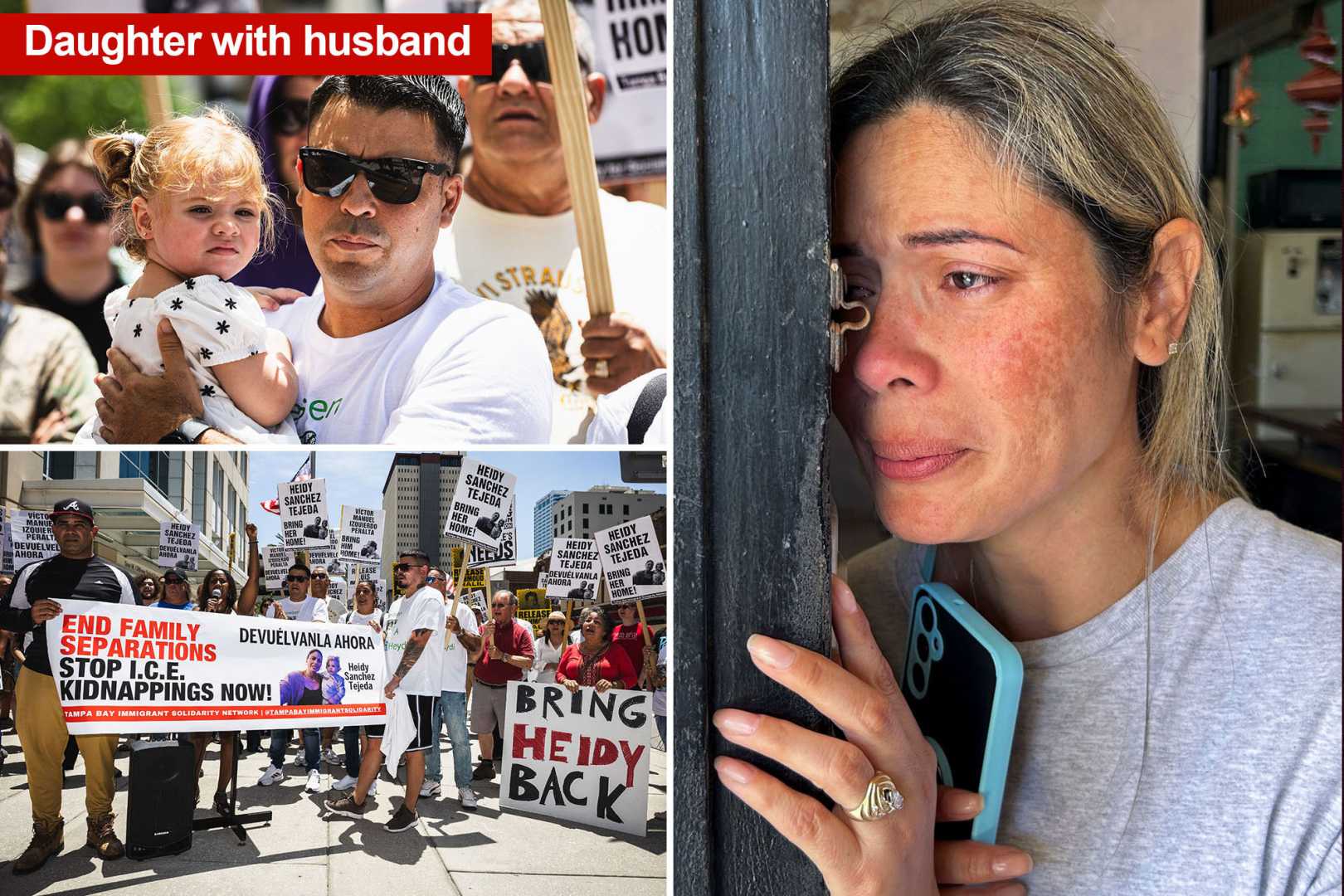News
Tampa Family Torn Apart by Deportation After ICE Check-In

TAMPA, Fla. — A Tampa family is grappling with the sudden deportation of a mother to Cuba, following what was supposed to be a routine check-in at an immigration office last week. Heidy Sanchez, a Cuban-born woman, was taken into custody and sent back to Cuba, leaving behind her husband, Carlos Yuniel Valle, and their one-year-old daughter, Kaeleyn, who has health conditions.
Sanchez’s husband, Valle, a U.S. citizen, expressed his distress, stating, “We have lived very normal lives. We had our baby. We were able to buy our house and tragedy just surprised us.” They were in the process of securing her immigration status when the situation took a turn for the worse.
Valle mentioned that Sanchez attended all her immigration appointments and complied with legal procedures. “My wife did everything by the law. She never got into any trouble. She went to all of her ICE appointments year by year,” he said. However, now all efforts to keep their family together seem to be on hold after her deportation.
Valle described the emotional toll as the couple attempts to communicate via video calls. “She tells me let me sing the lullaby that I would sing to her. And she starts and the baby kisses the phone and touches her face on the phone. And then I start crying, she starts crying,” he recounted.
Immigration experts are weighing in on the implications of such deportations. Michael Vastine, a clinical programs director at Stetson University College of Law, noted a shift in U.S. policies regarding Cuban migrants, saying, “So that’s a real big change, both that the U.S. is not granting Cubans residency under the Cuban Adjustment Act as regularly as in past decades and that Cubans are being physically removed.” Such actions are leaving many migrant families, like Valle and Sanchez, in precarious situations.
Following Sanchez’s deportation, Representative Kathy Castor, a Tampa Democrat, met with Valle and criticized the treatment of immigrant families, asserting, “Immigration enforcement must be lawful and humane, not weaponized for political stunts.”
Sanchez’s deportation is not an isolated incident in a changing immigration landscape under the Trump administration. Other families, such as a Honduran mother and her U.S. citizen children, have also faced similar fates after routine check-ins. Advocates argue these actions exemplify a violation of due process rights.
Valle is determined to fight for his wife’s return, hoping for a swift resolution. “What I’m asking is for her to be returned to her daughter, so she can raise her daughter, care take for her,” he said. As the situation unfolds, the plight of families like Valle’s highlights ongoing debates about immigration enforcement in the U.S.












